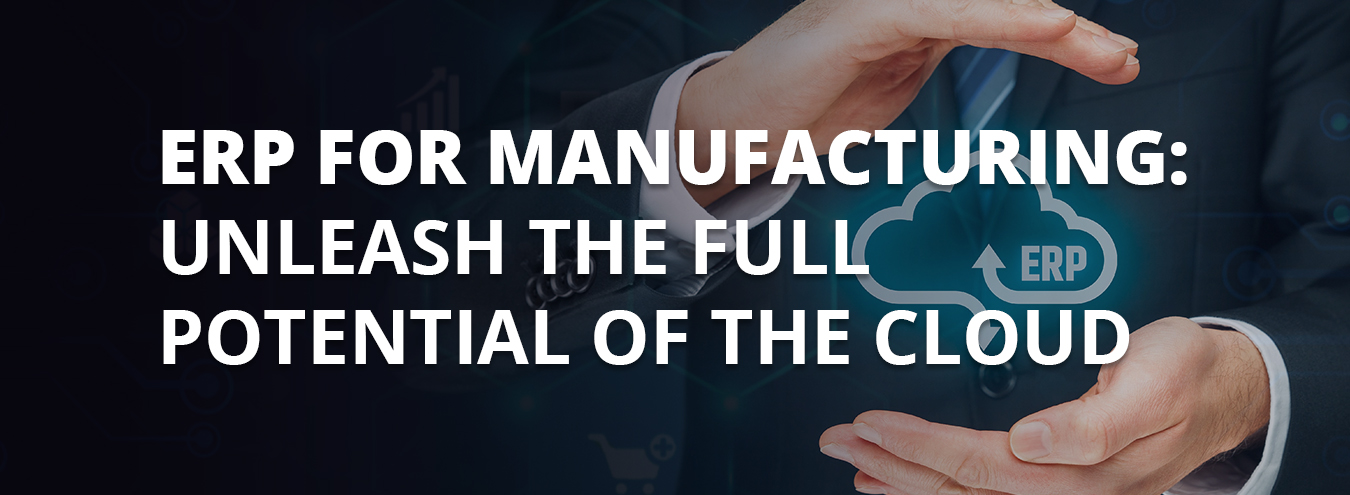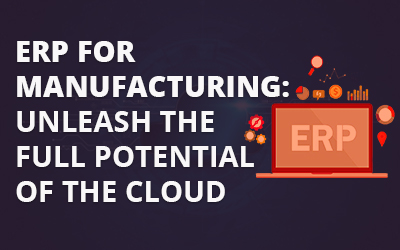
With the integration of numerous advanced technologies, Industry 4.0 has generated inflection points, opening up limitless opportunities. One of the most critical dimensions is the cloud, which serves as a virtual focal point for transformation. According to an IDG (Internet Development Group) survey, 77 percent of companies have at least one cloud-based program.
The cloud’s ubiquitous presence isn’t the only thing that makes it a game-changer for manufacturing; it’s the convergence that comes with cloud adoption that makes it a game-changer. From Ford Motors’ first moving assembly line more than a century ago to the Volkswagen Automotive Cloud, the car manufacturing industry has changed drastically. This has seen massive value being added to the goods that are produced. Most notably, as a technology-dependent industry, companies that have embraced innovation and technology have continued to prosper. According to International Data Corporation’s (IDC) Semi-annual Industry Cloud Tracker, the manufacturing industry is forecast to spend $21 billion on the cloud by 2021.
The Cloud Is A Solution Enabler
Companies must devote more IT resources and personnel to the creation and ongoing development of systems. In particular, they should focus on engagement, insight, and action that enhance the consumer experience. Think of innovations like the Internet, the smartphone boom, and now the big data analytics revolution have all occurred. They must also ensure that current applications as well as these new digital services are handled efficiently in terms of privacy, dependability, and usability.
This new agile business world is built on the cloud. It’s the platform that makes agile application creation possible. The ability to provide versatile, on-demand access to the services that underpin these modern digital business offerings relies heavily on cloud-based infrastructure. Solutions like ERP for manufacturing enable businesses to scale infrastructure as required to meet changing business needs. At the same time, they reduce the risk of squandered IT capital. This is a problem that has previously stifled investments in new digital services. Eleven factors stand out among the several explanations why cloud computing is vital. These also show the value of cloud-based ERP solutions.
1. Modernisation/Internationalisation:
Modernisation has assisted producers in gaining access to expertise and lower overhead costs, enabling them to remain competitive. As a result, manufacturers’ footprints are spread around many areas. All processes must be integrated into a single process. Cloud computing is the only infrastructure that can fulfil all requirements.
2. Services that are data-driven
Data is the new fuel. And IDC figures show that companies that deal with large amounts of data are more likely to invest heavily in the cloud. This shows that cloud ERP for manufacturing provides businesses with all the resources they need. It can see companies save/store, analyse/process, and recover/retrieve data from various sources. The synchronisation and harmonisation of data, when combined with analytics, gives manufacturers the ability to achieve a smooth process flow.
3. Embedded cloud and IoT
Embedded cloud and IoT are becoming increasingly common in the manufacturing industry. Although manufacturing is somewhat different from other industries that are solely digital, IoT and cloud penetration in manufacturing has made it the industry leader. According to a Forrester survey, the manufacturing sector has the highest rate of cloud adoption at 45 percent. Assembly lines have been transformed by embedded cloud solutions like ERP for manufacturing. These consist of sensors, RFID, and other systems that work together to capture and process real-time data regarding different performance parameters.
4. Robotics — the colossal leap that eclipses the transformation’s other aspects
The manufacturing industry has reached technology maturity, as demonstrated by the figures. According to the Boston Consulting Group, about 1.25 million industrial robots will have been installed by 2025. Automation efficiency necessitates enterprise-wide connectivity. This can only be accomplished by cloud integration, which eliminates silos and disconnected programs, resulting in a unified workflow.
5. Energy cost reductions and green initiatives
With stakeholders working to reduce energy use and carbon emissions, going green has become more of a business imperative. Increased energy costs and greenhouse emissions arise from multiple locations for systems
Manufacturers benefit from the cloud because it helps them to deploy greener programs. And it still optimises the benefits at lower costs. Manufacturers’ second-highest operating cost is power consumption. The cloud is a green initiative that allows manufacturers to minimise operational costs in all locations while also moving to more environmentally sustainable processes.
6. Manufacturers now have access to more versatile tools
Manufacturers no longer have to restrict themselves to the technology they can host and handle in-house thanks to the cloud. Almost every IT problem can now be solved with a cloud-based solution:
- IaaS (Infrastructure as a Service) enables users to view virtual computing services such as storage and servers.
- PaaS (Platform as a Service) provides services such as hardware and applications that are commonly needed for software development.
- SaaS (Software as a Service) allows users to access software that is hosted, managed, and operated by a third-party cloud providers.
7. Versatility:
A company’s business process would need to pivot several times to successfully implement a digital transformation plan. By providing on-demand computing services, infrastructure, and platforms, cloud computing relieves an organisation of the burden of investing in a diverse collection of IT resources. As a result, a company can become more innovative and versatile.
8. Economic/Budget-friendly:
The cloud offers a dynamic business model. Companies only pays for the resources they use, in addition to the freedom to adjust requirements as required. As a result, companies can not only save money on IT infrastructure purchases and management. They can also easily scale their resources depending on demand.
9. Privacy/Security:
If you keep your database in-house, you are still at risk of losing sensitive data. This can happen due to data breaches, unplanned system shutdowns, disasters, brute force attacks, and so on. You can quickly generate multiple backups of your data by using cloud hosting. This is particularly useful when working with big data. The chances of system failures spike when processing massive quantities of data.
10. Fast Customization:
For digital transformation to be effective, an organisation must continually evolve, evaluate, execute, and repeat. Without having to set up infrastructure, businesses can use the cloud as a platform to easily develop, test, and deploy applications. As a result, a company can experiment with multiple applications on various platforms throughout the transformation phase.
11. Improved Partnership:
The adoption of a culture of creativity and imagination, as well as the abolition of the old hierarchical command system, is needed for digital transformation. Owing to cloud storage, data can be opened from any place and at any time. Plus, businesses can also monitor a user’s authority level, ensuring that delegation is as efficient as possible. Overall, it leads to the growth of a collaborative mindset.
Notably, for many companies, the effectiveness of their IT service delivery environments determines whether they succeed or fail. And cloud computing is predicted to rise at a 19 percent compound annual growth rate from $67 billion in 2015 to $162 billion in 2020.
Without a question, the cloud is a solution enabler. It incorporates different innovations and assists manufacturers in achieving their business goals with greater success. For manufacturers who want to incorporate different aspects of their business on the cloud, the right ERP solution is ideal. Manufacturers can gain insights and make strategic decisions that increase production, performance, and quality. Plus, they can benefit from integrated applications that integrate with all cloud functions. Cloud ERP for manufacturing is a showstopper that maximises the benefits of the cloud when it comes to achieving business goals through technology.
All of these advantages mean that if you work in the manufacturing industry and want to prepare for a digital transformation in your business, the cloud is a reasonable and optimal solution. We can be a helpful partner if you are considering moving to the cloud or need an IT solution expert. Tech Integra ERP has extensive knowledge in these areas thanks to over fifteen years of experience working on various technologies such as cloud, smartphone, and internet. Please contact us for a project discussion, consultation, or proof of concept.


